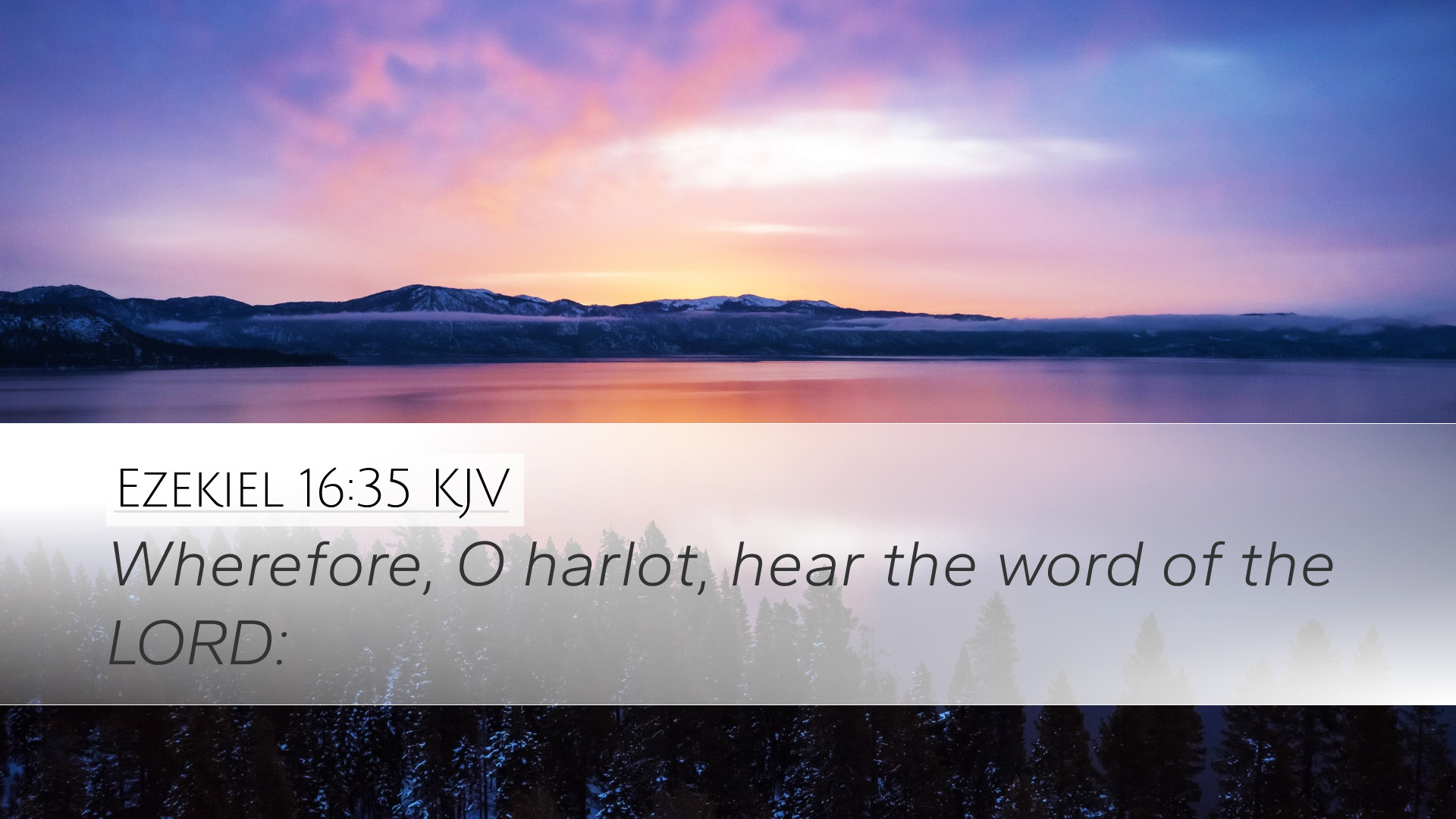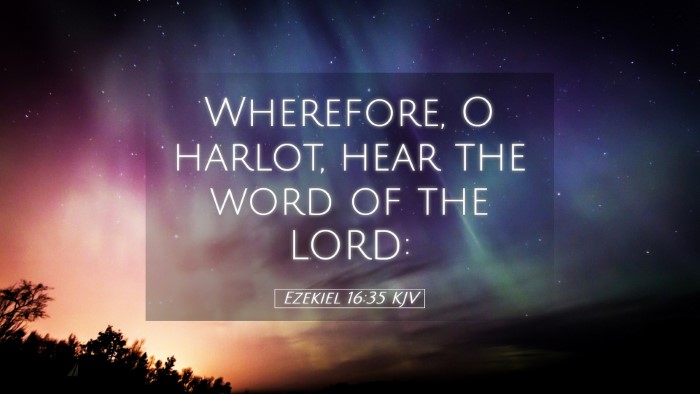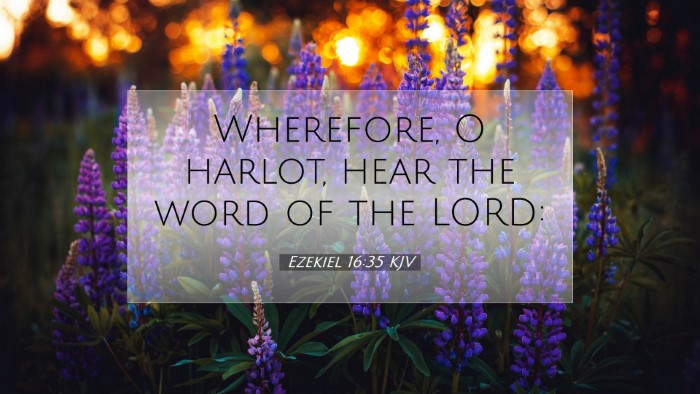Ezekiel 16:35 Commentary
Bible Verse: "Wherefore, O harlot, hear the word of the Lord."
Introduction
This poignant verse from Ezekiel encapsulates God’s passionate rebuke of Jerusalem, often characterized through the metaphor of a harlot. The term 'harlot' serves to express the unfaithfulness and idolatry of His people, portraying the deeply entrenched spiritual adultery that provoked divine judgment. Understanding this verse requires an exploration of its themes and the context in which it is situated within the book of Ezekiel.
Contextual Background
The book of Ezekiel is a prophetic narrative that reveals the consequences of Israel's apostasy and the promise of restoration. Ezekiel speaks during a tumultuous period, in which Israel faces exile and judgment. Ezekiel 16 uses the allegory of a woman (representative of Israel/Jerusalem) to illustrate her spiritual and moral degradation. Throughout the chapter, God recalls Israel's beginnings, their ingratitude, and the eventual forsaking of God for foreign idols.
Commentary Insights
-
Matthew Henry:
Henry emphasizes God’s call to Israel, portraying the seriousness of the charge against her. He remarks that the term 'harlot' is indicative of the spiritual unfaithfulness that Israel exhibited by turning away from God to worship idols. The repeated call to hear the word of the Lord illustrates God's persistent desire for repentance and restoration, despite the grievousness of their sins.
-
Albert Barnes:
Barnes provides an exegetical breakdown of the phrase “O harlot,” elucidating it as a metaphor for Israel’s spiritual infidelity. He notes that the verse serves not only as a condemnation but as an urgent plea to return to the Lord. The prophetic voice calls out as a means of reclaiming the covenant relationship, stressing the importance of heeding divine instruction to avert impending judgment.
-
Adam Clarke:
Clarke highlights the emotional depth of God's address in this verse. He interprets God’s calling of Israel as a harlot in light of the covenant relationship, which was marred by idol worship. Clarke underlines that the rebuke functions as both a warning of consequences and an invitation for correction, reflecting God’s love and justice intertwined. The metaphor of harlotry implies not only betrayal but also the depth of commitment that has been broken.
Theological Implications
Theologically, Ezekiel 16:35 challenges the reader to consider the seriousness of idolatry in their lives. It prompts reflection on faithfulness to God amidst a world filled with competing allegiances. The metaphor of a harlot serves as a stark warning against spiritual complacency and unfaithfulness.
Application for Contemporary Believers
For pastors, students, and scholars, this verse can serve as a profound reminder of the human tendency towards spiritual infidelity. It calls for introspection regarding our commitment to God and challenges believers to evaluate areas of life where they might have pursued ‘idols’—whether materialism, relationships, or personal ambitions. As Ezekiel urges the audience to listen to the word of the Lord, contemporary believers are likewise summoned to discern God’s voice amid distractions.
Conclusion
Ezekiel 16:35 is a powerful reminder of God’s relentless call for faithfulness among His people. The use of the term 'harlot' effectively portrays the seriousness of spiritual betrayal, while also reflecting God’s ongoing love and desire for reconciliation. This verse, when studied within its context and through the insights of esteemed commentators, encourages a deeper understanding of God’s nature and a call to respond with fidelity in our own spiritual journeys.


